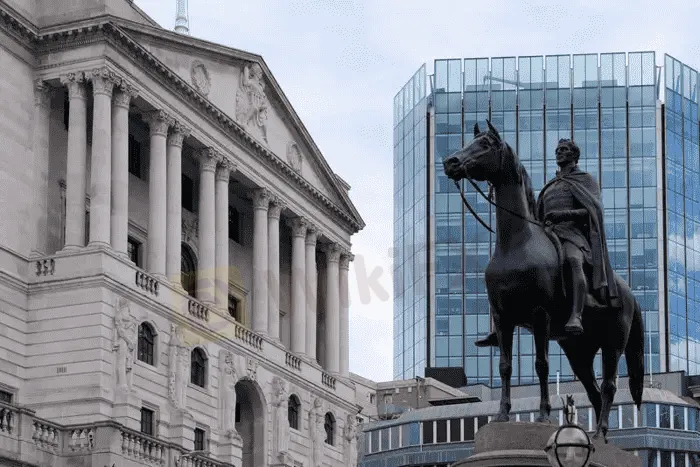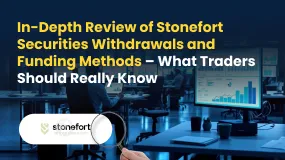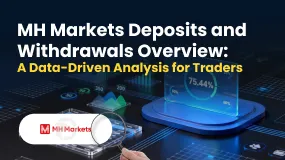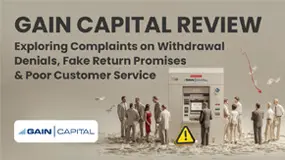简体中文
繁體中文
English
Pусский
日本語
ภาษาไทย
Tiếng Việt
Bahasa Indonesia
Español
हिन्दी
Filippiiniläinen
Français
Deutsch
Português
Türkçe
한국어
العربية
Analysis-Under water: how the Bank of England threw markets a lifeline
Abstract: Calls to the Bank of England saying some British pension funds were struggling to meet margin calls began on Monday. By Wednesday they were getting more urgent and coordinated.

Wild gyrations in financial markets in response to a government “mini-budget” on Sept. 23 meant that swathes of Britain‘s pension system were at risk, raising widespread concerns about the country’s financial stability.
British Finance Minister Kwasi Kwartengs statement had included dramatic plans to slash taxes and pay for it with borrowing which sent government bond yields soaring.
In the following days, Britains borrowing costs surged the most in decades, while the pound plunged to a record low.
But while these reactions were plain for all to see, behind the financial market screens there was a hidden impact.
At risk of blowing up were obscure financial instruments meant to match long-term pension liabilities with assets, which had never been tested by bond yields moving so far or so fast.
Among those urgently calling the BoE were funds managing so-called liability-driven investments (LDI), a seemingly simple hedging strategy at the heart of the blow-up.
The LDI market has boomed in the past decade and assets total nearly 1.6 trillion pounds ($1.79 trillion) – more than two-thirds the size of the British economy.
Pension schemes were forced to sell government bonds known as gilts after they found it hard to meet emergency demands from the LDI funds for collateral on ‘under-water’ derivatives positions, where the value is less than on a funds books.
LDI funds were calling for the urgent cash to shore up loss-making positions. The funds were themselves facing margin calls from their relationship-banks and other key financial players.
“We laid our cards on the table. You don‘t expect them (the BoE) to give you much back because they’re not going to show you their hand, right?” said James Brundrett of pension consultant and fiduciary manager Mercer, which held a meeting with the BoE on Sept. 26.“Thank God they listened because this morning (Sept. 28), the gilt market wasnt operating,” he added.
Facing a market meltdown, the BoE stepped in with a 65 billion pound ($72.3 billion) package to buy long-dated gilts.
And echoing former European Central Bank boss Mario Draghi at the height of the euro zone debt crisis, the central bank pledged to do whatever it took to bring financial stability.
While this may have eased the immediate pressure on pension funds, it is far from clear how much time the BoE has bought as shockwaves reverberate through global markets from recently-apppointed Prime Minister Liz Truss plan, which as well as spooking investors drew a rare IMF rebuke.
Chris Philp, chief secretary to the UK Treasury, said on Thursday he disagreed with the IMF‘s concerns about the government’s tax-cutting budget, saying it would lead to long-term economic growth.

By the end of a turbulent week, many pension funds were still liquidating positions to meet collateral requests and some were asking the companies they manage money for to bail them out with cash, sources told Reuters on Friday.
“The question is what happens when the Bank of England pulls out of this market?” said Mercers Brundrett, adding that there is a window of opportunity for pension funds to get enough money together to shore up collateral positions.
“By the end of the day (Monday) we were saying if this continues we are in serious trouble,” one fund manager at a large British corporate pension scheme told Reuters.
“By Wednesday morning, we were saying this is a systemic problem. We were on the brink. It was like 2008 but on steroids because it happened so fast,” the fund manager added.
BlackRock, another big LDI manager, told clients on Wednesday that it would not allow them to replenish the collateral needed to keep a position open, a note from BlackRock seen by Reuters shows.
BlackRock said in an emailed statement on Friday that it was cutting leverage in the funds and that it did not halt trading in them.
Not out of the woods
The potential for the stress to cascade beyond pension funds and throughout Britains financial industry was real. If the LDI funds defaulted on their positions, banks which had arranged the derivatives would be sucked in too.
The massive stress on a major economys financial system made global waves, with even safe-haven U.S. Treasuries and top-rated German bonds hit. Atlanta Fed President Raphael Bostic on Monday warned events in Britain could lead to greater economic stress in Europe and the United States.

While the BoE intervention sent yields plummeting, pushing the 30-year bond yield back to Sept. 23 levels and easing fears of an immediate crisis, fund managers, pensions experts and analysts say Britain is far from out of the woods.
No one knows how much the schemes will need to sell, and what will happen once the BoE stops buying bonds on Oct. 14.
Britains central bank is now in the unenviable position of having postponed its plan to sell bonds, resulting in monetary loosening, and at the same time tightening with interest rates.
In November, it is expected to raise rates further and it has said it will stick to a plan to sell its bonds.
“The concern would be that the market sees this as something to be tested and I dont believe the Bank will want to set this precedent. This continues to leave long gilts vulnerable,” said Orla Garvey, a fixed income manager at Federated Hermes.

Investor confidence has been shaken, not just in Britain.
“The situation in England is quite serious because 30% of mortgages are heading toward variable rates,” said billionaire investor Stanley Druckenmiller.
“What you dont do is go and take taxpayer money and buy bonds at 4%,” said Druckenmiller. “This is creating long-term problems down the road.”
Standard & Poor‘s cut the outlook for its AA credit rating for British sovereign debt on Friday to “negative” from “stable”, saying Truss’s tax cut plans would cause debt to keep rising.
Meanwhile, demand for U.S. dollars in currency derivative markets surged to its highest level since the height of the COVID-19 crisis in March 2020 on Friday, as the market turmoil sent investors in search of cash.
Ken Griffin, billionaire founder of Citadel Securities, one of the worlds biggest market-making firms, is concerned.
“It represents the first time weve seen a major developed market, in a very long time, lose confidence from investors,” Griffin told an investor conference in New York on Wednesday.

Disclaimer:
The views in this article only represent the author's personal views, and do not constitute investment advice on this platform. This platform does not guarantee the accuracy, completeness and timeliness of the information in the article, and will not be liable for any loss caused by the use of or reliance on the information in the article.
Read more

Garanti BBVA Securities Exposed: Traders Report Unfair Charges & Poor Customer Service
Have you been financially ruined through chargebacks allowed by Garanti BBVA Securities? Do you have to wait for hours to get your queries resolved by the broker’s customer support official? Did the same scenario prevail when you contact the officials in-person? Failed to close your account as Garanti BBVA Securities officials remained unresponsive to your calls? Many have expressed similar concerns while sharing the Garanti BBVA Securities review online. In this article, we have shared some complaints against the broker. Take a look!

In-Depth Review of Stonefort Securities Withdrawals and Funding Methods – What Traders Should Really
For any experienced forex and CFD trader, the mechanics of moving capital are as critical as the trading strategy itself. The efficiency, security, and transparency of a broker's funding procedures form the bedrock of a trustworthy, long-term trading relationship. A broker can offer the tightest spreads and the most advanced platform, but if depositing funds is cumbersome or withdrawing profits is a battle, all other advantages become moot. This review provides a data-driven examination of Stonefort Securities withdrawals and funding methods. We will dissect the available information on payment options, processing times, associated costs, and the real-world user experience. Our analysis is anchored primarily in data from the global broker regulatory inquiry platform, WikiFX, supplemented by a critical look at publicly available information to provide a comprehensive and unbiased perspective for traders evaluating this broker.

MH Markets Deposits and Withdrawals Overview: A Data-Driven Analysis for Traders
For any experienced trader, the integrity of a broker is not just measured by its spreads or platform stability, but by the efficiency and reliability of its financial plumbing. The ability to deposit and, more importantly, withdraw capital without friction is a cornerstone of trust. This review provides an in-depth, data-driven analysis of the MH Markets deposits and withdrawals overview, examining the entire fund management lifecycle—from funding methods and processing speeds to fees and potential obstacles. MH Markets, operating for 5-10 years under the name Mohicans Markets (Ltd), has established a global footprint. With a WikiFX score of 7.08/10, it positions itself as a multi-asset broker offering a range of account types and access to the popular MetaTrader platforms. However, for a discerning trader, the real test lies in the details of its payment systems and the security of their funds. This article dissects the MH Markets funding methods withdrawal experience, leveraging pr

GAIN Capital Review: Exploring Complaints on Withdrawal Denials, Fake Return Promises & More
Is your forex trading experience with GAIN Capital full of financial scams? Does the broker disallow you from withdrawing your funds, including profits? Have you been scammed under the guise of higher return promises by an official? Does the GAIN Capital forex broker not have an effective customer support service for your trading queries? Concerned by this, many traders have shared negative GAIN Capital reviews online. In this article, we have discussed some of them. Read on!
WikiFX Broker
Latest News
GCash Rolls Out Virtual US Account to Cut Forex Fees for Filipinos
WikiFX's New Evaluation of ATM Capital LTD: Does its License Protect the Arab Investor?
How a Fake Moomoo Ad Led to the “New Dream Voyage 5” Scam
Is Axi Legit? A Data-Driven Analysis of Its Regulatory Standing and Trader Feedback
Trive Investigation: High Score, Hidden Risk - The Profit Paradox
In-Depth Uniglobe Markets Commission Fees and Spreads Analysis – What Traders Should Really Know
FXPesa Review: Are Traders Facing High Slippage, Fund Losses & Withdrawal Denials?
CMC Markets Australia Revenue Surges 34%, But High-Net-Worth Clients Face Tax Phishing Threat
The 350 Per Cent Promise That Cost Her RM604,000
INZO Commission Fees and Spreads Breakdown: A 2025 Data-Driven Analysis for Traders
Currency Calculator



